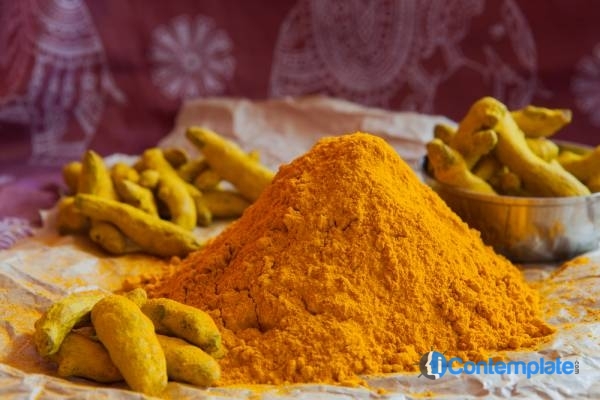<p style="text-align: justify;">These days, many people are opting to take natural health supplements rather than rely solely on the products made by large pharma companies and doled out by their doctors. After all, it has been widely known for years that most spices have medicinal properties – some of them powerful – and as such have been used to promote wellbeing for many thousands of years. One such spice is turmeric (perhaps best known for its use in Indian cuisine) from which curcumin is derived. This is the primary active component of turmeric with over 150 potentially therapeutic properties.</p>
<ul>
<li><strong>Brain Stimulating: </strong>For many years now it has been known that turmeric and its active ingredients can have powerful benefits for your brain health. It works in a similar way to vitamin D, modulating many of the genes within your body. An example of this can be seen from the fact that in India, where the general population consumes a much higher amount of turmeric than in somewhere like the US, the prevalence of Alzheimer’s disease is more than four times lower. One of the reasons for this may be that curcumin can help to inhibit the accumulation of destructive beta amyloids in the brain. Also, people with this disease tend to have much higher brain inflammation levels and this supplement is well-known for its anti-inflammatory properties.</li>
<li><strong>Anti-Cancer: </strong>This naturally occurring product is increasingly being shown to be useful for the treatment of just about any kind of cancer. Research has shown that it can work to inhibit the growth, development and spread of tumours at the molecular level. It may, for example, be able to reduce angiogenesis (the growth of new blood vessels in tumours) and metastasis (the spread of cancer). It may even be able to help prevent cancer from occurring in the first place if taken on a regular basis – particularly those varieties associated with the digestive system.</li>
<li style="text-align: justify;"><strong>Anti-Inflammatory: </strong>As mentioned above in connection with its benefits for brain health, curcumin also have natural anti-inflammatory properties. Sometimes short-term inflammation can be beneficial for the body, but in the long term if not dealt with it can begin to take its toll. Chronic inflammation has been observed as a major problem in diseases as various as cancer, metabolic syndrome and degenerative conditions. The product works by targeting multiple steps in the inflammatory pathway at the molecular level.</li>
<li style="text-align: justify;"><strong>Anti-Oxidant: </strong>Turmeric and its active ingredients have been shown to dramatically increase the body’s anti-oxidant capacity. Oxidative damage involves free radicals, which react with organic substances such as fatty acids, proteins and DNA – believed to be one of the principal causative factors behind the aging process and a number of diseases. Thanks to their chemical structure, anti-oxidant products such as <strong>curcumin </strong>can help to neutralise free radicals. This particular supplement can also, as an added advantage, boost the activity of the body’s own anti-oxidant enzymes.</li>
<li style="text-align: justify;"><strong>Heart Disease: </strong>As heart disease is the biggest killer in the world, anything that can lower your risk of developing this is worth looking into. Curcumin may be able to improve the function of the endothelium, the lining of the blood vessel, which makes for a much healthier heart. After all, it has long been recognised that endothelial dysfunction is one of the major drivers of heart disease since the endothelium helps to regulate blood pressure, blood clotting and many other things besides. Alongside this very specific benefit, Curcumin’s above-mentioned anti-inflammatory properties are also of course very helpful when it comes to the treatment of heart problems.</li>
<li style="text-align: justify;"><strong>Anti-Depressant: </strong>It is not only the physical functions of the body on which this product can have an influence: it can also have a powerful mood-boosting effect. It is possible this is down to the fact that depression is linked to reduced levels of brain-derived neurotrophic factor (BDNF) and a shrinking hippocampus, and turmeric’s active ingredients are known to boost BDNF levels.</li>
<li style="text-align: justify;"><strong>Arthritis: </strong>Lastly, it has been well documented that arthritic patients respond well to taking curcumin. In rheumatoid arthritis in particular, its anti-inflammatory products can have a very beneficial effect. After all, most varieties of this illness (and there are many) involve some kind of inflammation of the joints, ranging from the mild to the extremely severe.</li>
</ul>

Why Take Curcumin Supplements?
